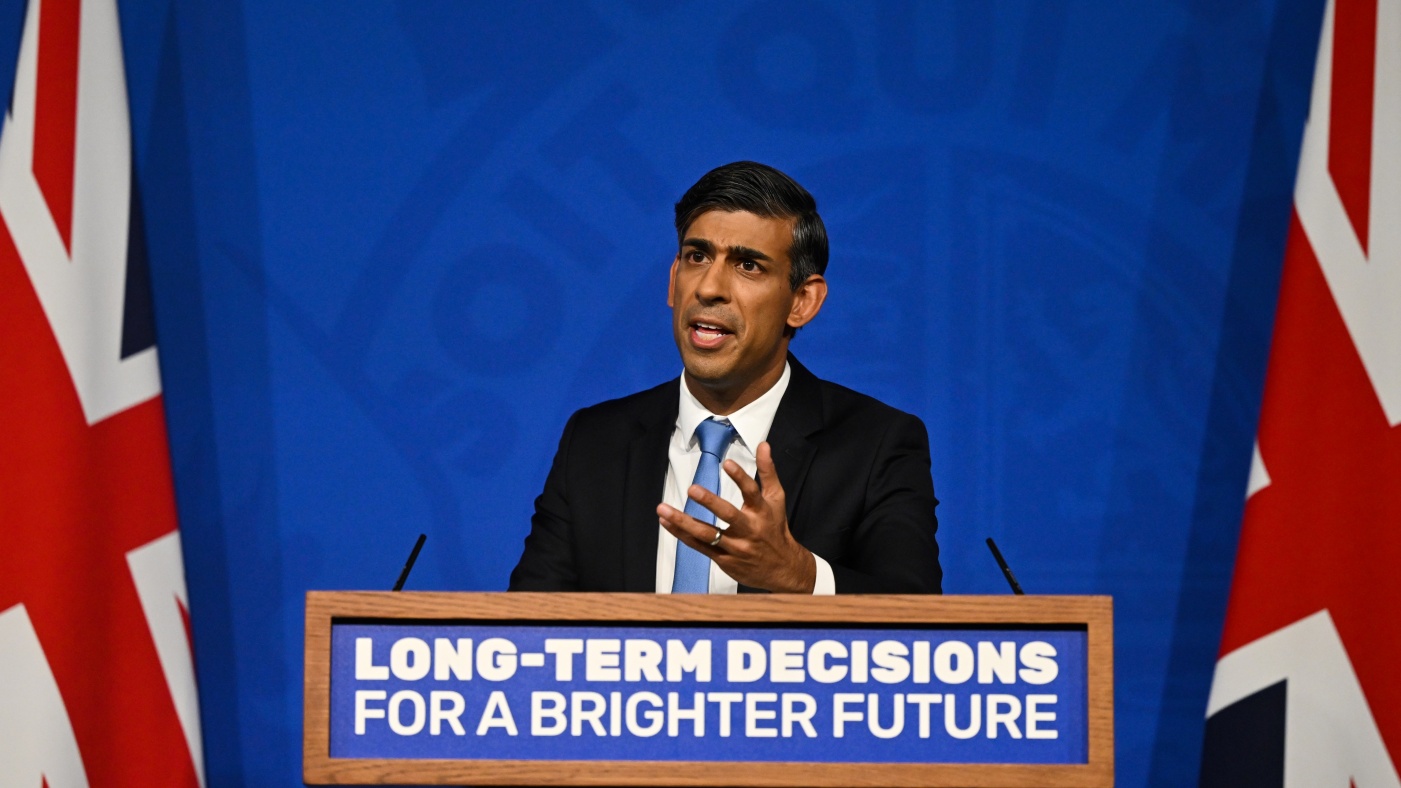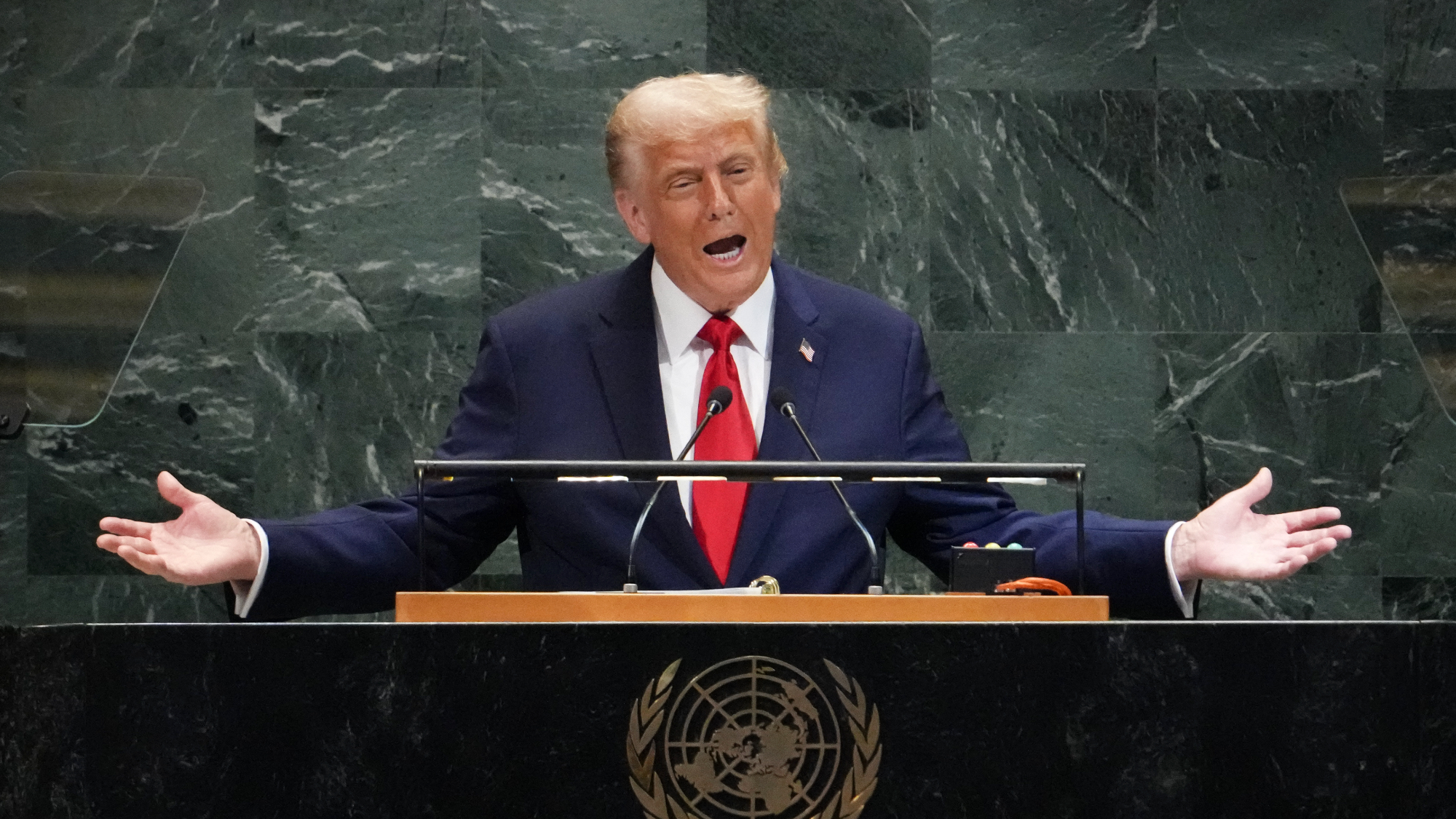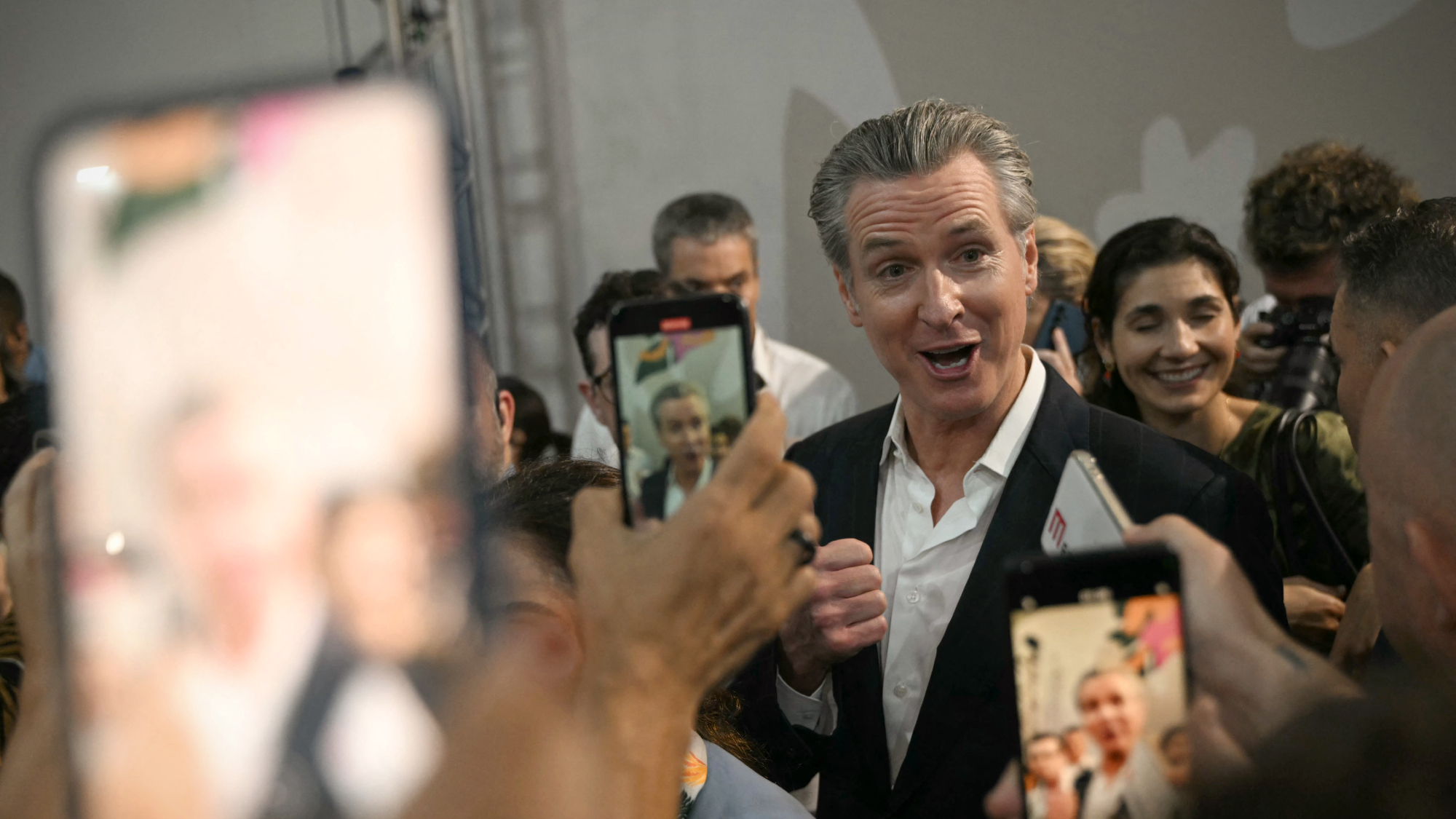Will Rishi Sunak's green wedge issue win over the public?
The PM draws dividing line with Labour on net zero ahead of the next general election

A free daily email with the biggest news stories of the day – and the best features from TheWeek.com
You are now subscribed
Your newsletter sign-up was successful
Rishi Sunak has announced delays and changes to several green policies in a major shake-up of the government's approach to achieving net zero by 2050.
In a press conference on Wednesday, the prime minister revealed a "flurry of U-turns" on climate targets, said The Guardian.
The most significant was a five-year delay to the ban on the sale of new petrol and diesel cars, meaning a requirement for all new cars to be "zero emission" will not now come into force until 2035. Among other announcements, Sunak also relaxed a 2035 phase-out target for gas boilers, introducing an exemption for the poorest households.
The Week
Escape your echo chamber. Get the facts behind the news, plus analysis from multiple perspectives.

Sign up for The Week's Free Newsletters
From our morning news briefing to a weekly Good News Newsletter, get the best of The Week delivered directly to your inbox.
From our morning news briefing to a weekly Good News Newsletter, get the best of The Week delivered directly to your inbox.
In his speech, Sunak claimed his "pragmatic" approach would still allow Britain to reach its 2050 target for net zero carbon emissions, without landing households with unnecessary bills of "£5,000, £10,000 or £15,000".
The changes come as Sunak "seeks to create dividing lines with opposition parties ahead of a general election", which is expected to come next year, said the BBC.
What did the commentators say?
Britain's net zero ambitions are "noble", said the Daily Mail, but it has become "glaringly obvious" that the "breakneck speed" with which successive Conservative governments have pursued net-zero targets "will prove ruinously expensive". It will be ordinary citizens and businesses "already groaning under a heavy tax burden and the cost of living" that will "inevitably be clobbered by the costs and inconveniences" of these "draconian" targets, said the paper.
In pushing back the dates of some green targets, Sunak has injected "a badly needed dose of common sense" into the climate change programme, shattering the "cosy consensus" of the "out-of-touch Westminster elite" who think they can "bully a compliant public into footing a mind-blowing climate bill".
A free daily email with the biggest news stories of the day – and the best features from TheWeek.com
In taking the "red pen" to some of the UK's flagship green targets, Sunak is hoping to make net zero a "wedge issue" ahead of next year's general election, said Politico.
Labour has made the green agenda the heart of its offering to the public, but Sunak seems to have "spied a potential advantage in presenting his government as the pragmatic defenders of ordinary voters struggling through a grinding cost of living crisis".
And on some of the specifics, Sunak could find support. According to YouGov polling on Wednesday, 50% supported delaying the petrol and diesel car ban, versus 34% who were against. Yet the public consistently back the government's goal to reduce carbon emissions to net zero by 2050, leaving pollsters doubtful there are any significant electoral gains to be made from seemingly "rowing back on the green agenda", said Politico.
Climate change experts, too, are "sceptical" about Sunak's claims that the UK can reach net zero by 2050 "without having to inconvenience the general public", said the Financial Times. Christian Brand, a professor in transport, energy and climate change at the University of Oxford, said the delay to the ban on petrol and diesel cars "would increase emissions from the sector by hundreds of millions of tonnes of carbon", making meeting the UK's medium-term carbon targets close to "impossible".
And Sunak's most contentious policy change – delaying the ban on the sale of new diesel and petrol cars from 2030 to 2035 – has "infuriated" some carmakers. In a speech on Wednesday, Lisa Brankin, chair and managing director of Ford UK, said the 2030 target had been a "vital catalyst" for the company to decarbonise production. "Our business needs three things from the U.K. government: ambition, commitment and consistency. A relaxation of 2030 would undermine all three," she said hours before Sunak's announcement.
What next?
Sunak's intervention puts Labour and the Tories "at loggerheads" on climate going into the next election, said Sky News' deputy political editor Sam Coates. Climate politics "will now inevitably get much uglier", he said. But the press conference not only "set out a new approach to the climate," but "a new argument about himself", added Coates.
Sunak is attempting to cast himself as someone who can "put aside party politics and can take emotion out of heated subjects". It is "quite a claim", said Coates, and the PM needs to take the public on a "big journey" in a small amount of time.
But with business leaders openly attacking him for destabilising industries, and some "blue-on-blue violence as Tory MPs reacted badly to the U-turn", the "kinetic" response to his announcement "may jar with his image".
Sorcha Bradley is a writer at The Week and a regular on “The Week Unwrapped” podcast. She worked at The Week magazine for a year and a half before taking up her current role with the digital team, where she mostly covers UK current affairs and politics. Before joining The Week, Sorcha worked at slow-news start-up Tortoise Media. She has also written for Sky News, The Sunday Times, the London Evening Standard and Grazia magazine, among other publications. She has a master’s in newspaper journalism from City, University of London, where she specialised in political journalism.
-
 The Week contest: AI bellyaching
The Week contest: AI bellyachingPuzzles and Quizzes
-
 Political cartoons for February 18
Political cartoons for February 18Cartoons Wednesday’s political cartoons include the DOW, human replacement, and more
-
 The best music tours to book in 2026
The best music tours to book in 2026The Week Recommends Must-see live shows to catch this year from Lily Allen to Florence + The Machine
-
 Trump’s EPA kills legal basis for federal climate policy
Trump’s EPA kills legal basis for federal climate policySpeed Read The government’s authority to regulate several planet-warming pollutants has been repealed
-
 How corrupt is the UK?
How corrupt is the UK?The Explainer Decline in standards ‘risks becoming a defining feature of our political culture’ as Britain falls to lowest ever score on global index
-
 The high street: Britain’s next political battleground?
The high street: Britain’s next political battleground?In the Spotlight Mass closure of shops and influx of organised crime are fuelling voter anger, and offer an opening for Reform UK
-
 Trump pulls US from key climate pact, other bodies
Trump pulls US from key climate pact, other bodiesSpeed Read The White House removed dozens of organizations from US participation
-
 Trump aims to take down ‘global mothership’ of climate science
Trump aims to take down ‘global mothership’ of climate scienceIN THE SPOTLIGHT By moving to dismantle Colorado’s National Center for Atmospheric Research, the White House says it is targeting ‘climate alarmism’
-
 Is a Reform-Tory pact becoming more likely?
Is a Reform-Tory pact becoming more likely?Today’s Big Question Nigel Farage’s party is ahead in the polls but still falls well short of a Commons majority, while Conservatives are still losing MPs to Reform
-
 ‘It’s ironic in so many ways’
‘It’s ironic in so many ways’Instant Opinion Opinion, comment and editorials of the day
-
 Newsom slams Trump’s climate denial at COP30
Newsom slams Trump’s climate denial at COP30speed read Trump, who has called climate change a ‘hoax,’ declined to send any officials to this week’s summit